Alan McGee - Interview
by Lisa Torem
published: 5 / 11 / 2010
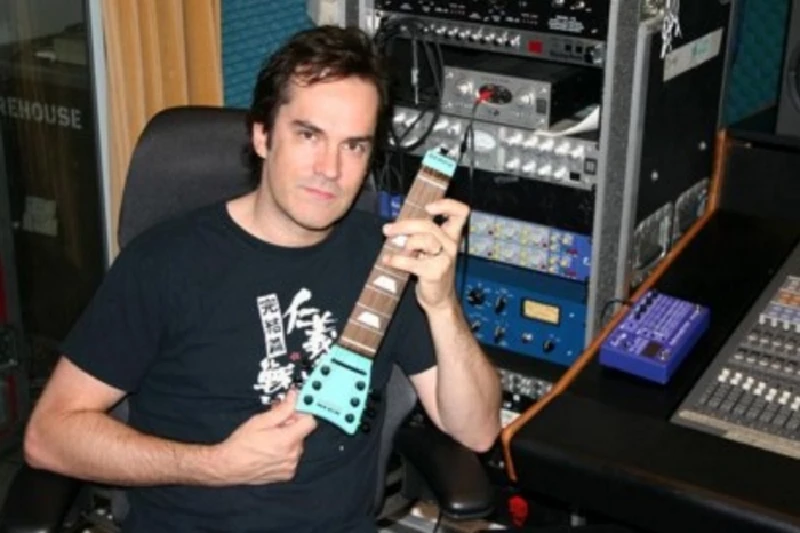
intro
FireHouse guitarist Bill Leverty speaks to Lisa Torem about his recent third album, 'Deep South', which is a covers collection of southern-based roots music primarily of the late 1800s and early 1900s
Inspired by the title of his grandfather William G. Leverty’s artwork, singer, songwriter and guitarist Bill Leverty named his third solo album and most recent recording, ‘Deep South.’ Leverty appears to draw much of his artistic inspiration from his loved ones. “I found my soul mate on a hot summer’s night in 1995,” he recalls, referring to his wife, Kris. And, his feelings for his daughter, Dabney, elicit similar depth, “Every time I look at her I see God.” But, Leverty’s other loves become clear upon entering his website (www.leverty.com). An illustration of tuning heads which delineate various components of his career commands attention. Creating ‘Deep South’ required extensive research of southern-based roots music of the late 1800s and early 1900s. It was a brave leap from his previous canon which included his debut solo album of 2004, ‘Wanderlust,’ followed by his first instrumental work, ‘Southern Exposure’, in 2007. Leverty first discovered guitar at aged four, stating he “fell in love, but we broke up for a while.” He became Virginia’s State Diving Champ by ten and also embraced ice hockey. But, happily, this would-be sportsman reconnected with his axe by the time he was fifteen. He and drummer Michael Foster met C.J. Snare and bassist Perry Richardson when the two performed with Maxx Warrior. Eventually, they formed the quartet FireHouse. After meeting Michael Caplan of Epic Records, the band recorded two albums with producer David Prater, ‘FireHouse’ (1990) and ‘Hold Your Fire’(1992). They switched producers, using Ron Nevison (Led Zeppelin, Ozzy Osbourne) for their 3rd CD, ‘3’ (1995) which garnered international success. Mark Severns produced their fourth CD, ‘Good Acoustics’ (1996), which went gold in six countries. FireHouse have also released another three albums, ‘Category 5’ (1998), ‘O2’ (2000) and ‘Prime Time’ (2003). By 2000, Bruce Waibel, a former Gregg Allman band member, had replaced Perry Richardson. Sadly, Bruce, who had become a loyal friend, died in 2003, but was commemorated in Leverty’s recordings. He was replaced by Allen McKenzie. Leverty can’t quite get his words out fast enough when he explains his eclectic passion for music. His close family ties are reflected in his choices of theme and lyrics. Whether standing in front of an abandoned hydro-electric plant, or by the St. James River, William G. Leverty’s grandson is just as grounded, because he has thrown his heart into all that he pursues. Talking to Pennyblackmusic, Leverty explains what it took to comb through years of material to produce ‘Deep South.’ PB: In regards to your new release ‘Deep South’, did you feel like Alan Lomax (ethnomusicologist and field collector of folk music of the 20th century-LT) having to do all that field-research? Can you describe the process for selecting the songs? BL: The funny thing is that I didn’t know who Alan Lomax was when I started this. Basically, I came out in winter, without anything recorded and I didn’t have anything written that I thought was keeper stuff: new songs or anything, so I thought I’ve got a little time left. I should make a cover tunes album. What kind of cover tunes should I do? And my initial reaction and initial thought was, let’s do a Led Zep song, because I really thought they were good, or a Jeff Beck song. Try a Dixie Dregs song and then try an old UFO song – and then I started thinking, I really want to try to get it more obscure because Led Zep or Van Halen or my influences: a lot of people have covered them. Let’s go back to their influences and I think that what I did subconsciously was think that I should go back to the influences of rock, but before Elvis. Okay, who was he listening to and who were the people he was listening to listening to? So, that took me to this time period right before rock was born. My brother was a rock aficionado. He suggested a lot of these artists and he kind of guided me, and as I was looking around, I noticed there were three genres that were popular then: gospel, country-western and whatever it was called right before blues. There was something happening that would later become blues. It wasn’t really officially blues yet. These genres fitted my style. There was also some classical music, big band, rag time kind of stuff and other genres that didn’t seem to apply to me artistically and I kind of zeroed in on those other three and what I was specifically looking for were songs in minor keys. They just seemed to draw my ear. So, that’s kind of how the search began. PB: One of the songs, ‘Samson and Delilah’ was covered by Rev. Gary Davis, Bob Weir from the Grateful Dead and Bruce Springsteen. How did you plan on making your version unique? BL: I listened to all three of those and the Bruce Springsteen version really is the one that I said, “I get it now. I think maybe I can make an interpretation of this song work for my style.” Rev. Gary Davis is, I think, the first one people listened to and kind of evoked their own images of how their interpretation would be. I really liked the Grateful Dead version. That’s the version my brother suggested. I didn’t find a Bruce Springsteen record. I just found it on YouTube and they had a huge band and all of these singers and all the singers were shaking some tambourines, or some percussion or something and I just thought that if I could do a really big sounding version of this song with a small drum kit it would be pretty cool. So I had to try to come up with a guitar riff that could keep my interest through the whole tune and, listening back, it kind of reminds me of Billy Gibbons, what he would do, and vocally, I used that voice, too, I don’t have a very wide range of styles that my voice will deliver – that’s sort of the gravel version of my voice. That’s what I kind of went for on that one; kind of what Billy Gibbons would do (Laughs). PB: ‘Hit the Road Jack’ was more true to the Ray Charles version. Was that what you anticipated or did it just come out that way? BL: It just came out that way. You know I thought that was such a cool song. PB: Yes, it’s a great, great song. BL: I love that song and I found out Ray didn’t write it. It was a guy named Percy Mayfield. I went and found a YouTube clip of him actually doing it. He has a girl playing the piano and he’s singing it and he sings it so well, even the female parts of the song. He’s singing and I was just blown away and I thought, “I’m going to try that one” and so I laid down the piano groove and kind of built around the piano part of it, and, when it came time to sing the high part, I couldn’t quite hit it that well and so I had my wife come down and sing it as a scratch track and then she sounded, I think, so good. I said, “We’re gonna have you sing the real track” (Laughs) and she said, “No, no.” She’d never done it before so she did it and I was really happy with the way it turned out. PB: ‘Rain and Snow’ seems to be a ballad of betrayal. It had a totally different feel to it and it was a really, powerful contrast. What was your take on that song emotionally? BL: That was another one that my wife helped me out with. It has a female harmony, a harmony that was too high for me to hit. After she blew me away on Ray Charles’ ‘Hit the Road, Jack’… “Gosh, you know, come sing this with me!” There’s a lot of people who have done this one and the guy who really knocked me out with that song was Peter Rowan. We saw him this past weekend. He played at the Richmond Folk Festival with a guy named Tony Rice who is an incredible guitar player and so I got to see those guys and they did that song and I got goosebumps all over. I didn’t know that song before I started working on that project. My brother suggested, “You should try this.” I think he showed me a Grateful Dead version of that song. I was not exposed to the Dead in my formative years. He gravitated towards that, so he showed me their version and then looking around I found this Peter Rowan version. He had such a beautiful voice singing it so I tried to capture that style of laid- back bluegrass, but added a little bit of electric guitar at the end, to kind of make it different. I treated that one as traditionally as I could. PB: Another traditional one, ‘900 Miles’, had that great train groove. How did you get that going technique-wise? BL: As far as the guitar, that’s a couple of acoustic guitars and a couple of mandolins all layered together. Then I’ve got the dobro in the background going and it’s one of those cool songs where it feels like the whole band is kind of sitting around in a circle and you can have one microphone in the middle and then, when it’s time for the mandolin player to do a solo, he takes a step forward and he’s a little bit louder and, when he’s done, he takes a step back and the singer continues. I wanted to try that style. I’ve never done anything like that before and I saw the Punch Brothers, an incredible new-grass band and they kind of do a version of that, although they use two mics. It was in a real nice theatre and there’s this guy, Chris Thile; he’s an amazing mandolin player. And, I thought that was so inspiring and that kind of made me think, maybe I can try that sort of style with the record because it’s so far removed from anything I’ve ever done before. I really wanted to do something different on this to kind of dust off all the instruments that I’ve got in my closet (Laughs) that I haven’t played on a record and this was the opportunity to do it. PB: Bill, your videos are very focused on you and the song, in contrast to other videos, some acts produce, that are thematically all over the place. BL: I told my wife I really wish we could shoot a video and she said, “We’ve got a video camera. Let’s go. Let’s do it.” So, she shot the footage and I just stood there and acted like I was playing and she told me, “Go over there and do it again and then stand over here.” We bought some video editing software and she put it altogether, and that was it. She’d never edited a video before, never shot a video before in her life, but it looked like she’d been doing it all her life. She’s really talented. I was amazed. She found those locations, too. The one for ‘Boll Weevil’ was an old abandoned, hydro-electric plant down on the James River and another one was an old plantation house, a little house, here in Richmond, also. PB: Those locations were unique. BL: It fits the era of the time period, of the songs, and the vibe of the music, so it was fun. PB: Lots of brick, abandoned buildings; they were powerful images, very masculine, too. BL: …and old. One was a historical Civil War site in Richmond where there was a Confederate army location where they actually had a prison and they had a headquarters. That’s where the hydro-electric plant is. It’s on a place called Brown’s Island. It’s one of the little islands of the city of Richmond, right on the James River. PB: I know you mentioned being inspired by Steve Morse, a guitarist, that shows a lot of range. Is that what inspires you? BL: Steve Morse is just the best guitarist walking on the planet today, I think, and his influences parallel some of mine, being Richie Blackmore, Eric Clapton, Jeff Beck and those guys. There’s something about Steve, he’s got this contrary southern style, also, where he combines that with jazz, fusion and rock. I just never grow tired of listening to him play. He’s just got all the right notes and all the best riffs and all the best changes, so he’s like a professor of coolness on guitar (Laughs). Nobody can touch that guy, I don’t think, in terms of being a composer and a player. His ability to mix all those different styles together is something I aspire to try to do, but he’s such a classical virtuoso, also, that I’ll never be able to come close to being mentioned in the same paragraph. To listen to him is such an inspiration for me and anybody who’s never heard of him should get everything he’s ever recorded because he’s the man. PB: That’s quite an endorsement, Bill. It took you until 2000 and FireHouse’s sixth album , ‘O2’, before you first sang lead vocals. Why did you wait so long to sing? BL: My first solo album was a vocal-based album called ‘Wanderlust’ in 2004 and that came out around about the same time as ‘Prime Time’. I sang two songs on ‘Prime Time’. The record before that was ‘O2’ and I sang one song, ‘I’m In Love This Time’. I’d been collecting these songs that didn’t really fit Firehouse well, either stylistically or vocally. We had a singer in CJ Snare who was really good and it doesn’t make sense to not have him sing our songs, but for a couple of these tunes, I felt like, if they would fit my voice well, I could propose it to the guys and say, “Look, if you guys don’t mind, I’d like to sing this” and they thought it was cool. I did it on ‘02’. I sang two of them on ‘Prime Time’. I sang one called ‘Holding On’ and another called ‘I’m the One’ which is a little more bluesy in sound and they obliged. I don’t know what the next FireHouse record will sound like and whether I’ll sing any songs or not. It wasn’t a plan or anything. I just said, “Hey, guys, I like this song. If you’d like, I’d really like to sing it.” And, they said, “Cool.” I try to write all the time. I stay busy. If I write something that fits my voice and I think I can put it off, I like to do it. If not, CJ can do anything (Laughs). You know it’s going to be good. PB: You wrote ‘Anytime’ for your daughter before she was born. Does that song still hold an emotional connection for you? BL: It still does. I actually played it for her, maybe six months ago, now that she’s more aware of what’s going on (Laughs) and we both started crying. As soon as she started welling up. I did, too. We hugged. I told her how much I loved her and everything. It does mean a lot to me and that’s her song and she likes listening to it so it’s pretty cool. PB: How do you stay balanced with the demands of touring, recording and having a family? BL: I’m so lucky. I’ve got a studio in my house. It’s not a huge studio or anything, but it’s enough where I go down and write and make records and that sounds respectable. So, I’m at home, and then when I tour, most of the time, we fly out on a Friday morning and I’m home on a Sunday night. So I’m home all of the week, usually, because we usually do weekend gigs. This week we’re going to Greece. I leave tomorrow and I’ll be back Monday night, so it’s kind of a long weekend. But, that’s not the norm. The norm is Friday night and Saturday night gigs coming home on a Sunday. So, I have a pretty blessed life in that the balance has just happened automatically where we’re not out on these tours for six weeks on a bus. We’re not gone for that long. Those are tough. PB: You met Michael Caplan who runs Epic Records in 1989 and, at that time, you felt that he wouldn’t ask you to change your vision. Is that vision still the same? BL: I think, for the most part, melodic hard rock, for FireHouse, and we want to be ourselves and not try to fit in the marketplace. He never really tried to do that to us. I really appreciated that he didn’t try to make us anybody that we weren’t. He didn’t try to set us up to fit in with whatever was happening at the time. When we made it, we were listening to a lot of the bands, or at least, we were influenced by a lot of those influences of the same bands, so I think we sounded a little bit like those bands, anyway. I think the one thing that has changed is, I think I’m more picky about lyrics nowadays. The lyrics that we were writing back then wouldn’t apply to me today. I’m in my forties. I’m thinking about more things that are more relevant as a forty- year old than as a twenty-year old. (Laughs). Your priorities change. That’s the one thing that’s kind of different. PB; Each solo album clearly represents a different side of you. Do you have plans for more recording projects? Do you think you will revisit or create another theme or genre? BL: I’m just writing whatever comes out, playing whatever comes out at the time. I don’t know. I kind of like to fly by the seat of my pants, let the music come out of my heart and not out of my head too much. If it’s out of my heart, I know it’s real. It’s going to have, hopefully, some passion that people will hear. Trying to do something consciously, it may come out a little bit contrived. I love everything so much and that’s one of the problems. I always wanted to do a funk record, like an old 70s funk record; make some harder-edged guitars… That’s one thing I’d love to do someday: rock-funk. So, maybe that’s the thing. I’ve sat down and tried to write some. I struggle with it a little, but until the right notes come out, or the right changes, I have to keep that project in the back of my mind. I really like southern rock, so I’d be a southern hard rock, not too heavy, but southern hard rock would be cool and I also like straight-ahead melodic hard rock. I just like so much stuff. I like country music. I like jazz. And I love blues (Laughs). It’s hard for me because I really don’t know what I want to be when I grow up. PB: Which FireHouse album was the most artistically successful? BL: Artistically successful would imply, not necessarily financially, sales-wise. I’m more happy with our last record, artistically, because it’s fresher and we wrote more of it as a team and I think that album shows a little more diversity and a little bit more growth. It’s listenable still, to me, not that they all aren’t, but I really like that one. I really gravitate, also, to the third one. Financially, it wasn’t a success, but it was a cool record. I liked the recording process of that one. The band was all playing together in the studio. I liked the drum sound on that one and the songs on ‘3’. But, I also go back to those first two and go, Man, those are really cool albums for their time;’ the big production and everything. It’s still something I really like and I have to mention ‘Category 5’. We just came off of ‘Good Acoustics’ which is an acoustic record of our greatest hits. We wrote a few songs for that one, too, which artistically, I’m very pleased with this record we did. We kind of combined our acoustic style with our rock style, so it’s kind of a transition record and I kind of liked where we were there artistically as well. That’s the long-winded answer, I guess. PB: Do you have any touring plans coming up? BL: We are always on call. Our agent is always fielding offers, always out there shaking the bushes and going to conventions and trying to get more gigs. We just got two with Sammy Hagar that we’re looking forward to doing in a couple of big casinos in Oklahoma, I believe. Those casino gigs are really nice gigs: not only because they have these great halls or auditoriums or theatres, but also the party is right there, the hotel is right there and the food is right there and it’s all good (Laughs). I kind of like that a lot and opening for Sammy is awesome. We’ve done it . PB: I’m going to ask you for one more comment on ‘Deep South’ There’s a track called ‘Run On’ which is really forceful and electrifying. What does that song mean to you? BL: Well, it’s about the fear of God. Sooner or later, God will cut you down. You eventually will meet your maker, I believe. If you live your life the way you’re supposed to, that meeting will be less fearful, I guess, and it‘s telling the people out there, you can be the person to send the message out there that we’re all sinners. Just remember that sooner or later, God’ll cut you down. It’s a heavy message. Elvis covered that one. The Blind Boys of Alabama covered it. Johnny Cash did it on his last record before he passed away. He slowed the tempo down and made it real haunting. I like the way he did it so much so I kind of went after that vibe and I drew inspiration from that. PB: Thank you.
Picture Gallery:-
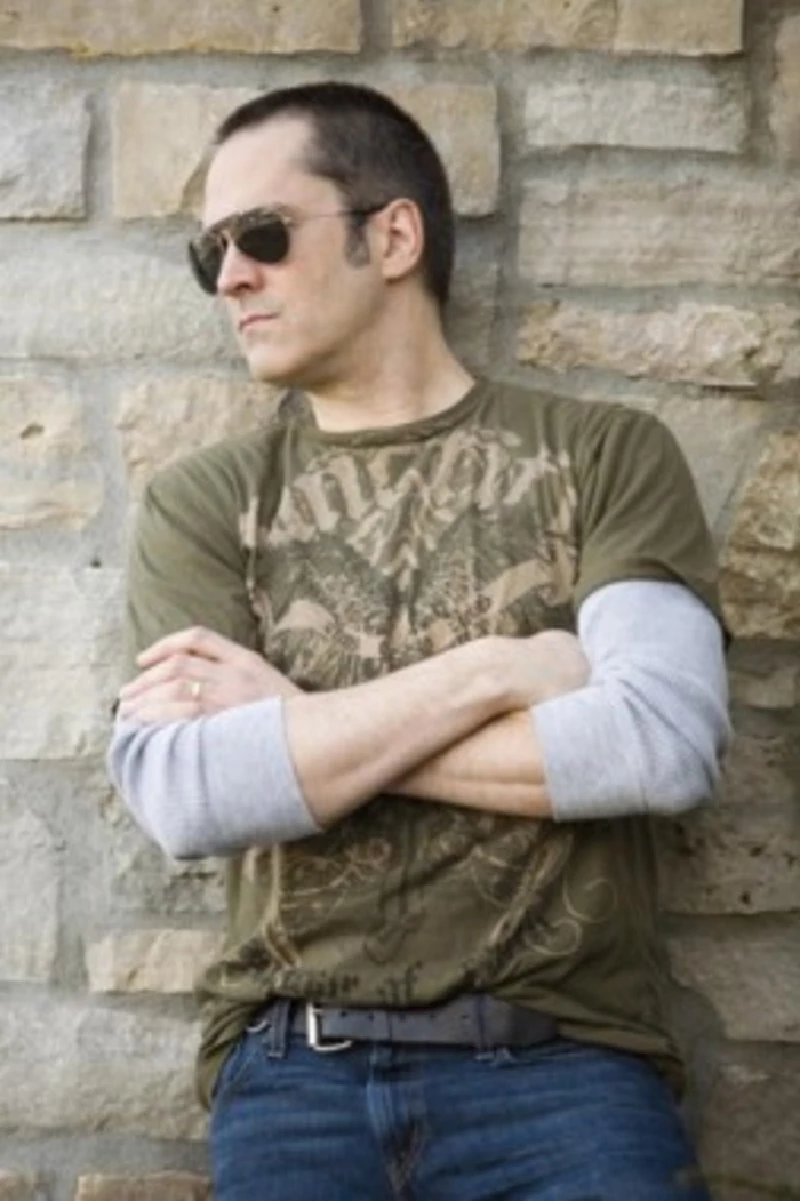
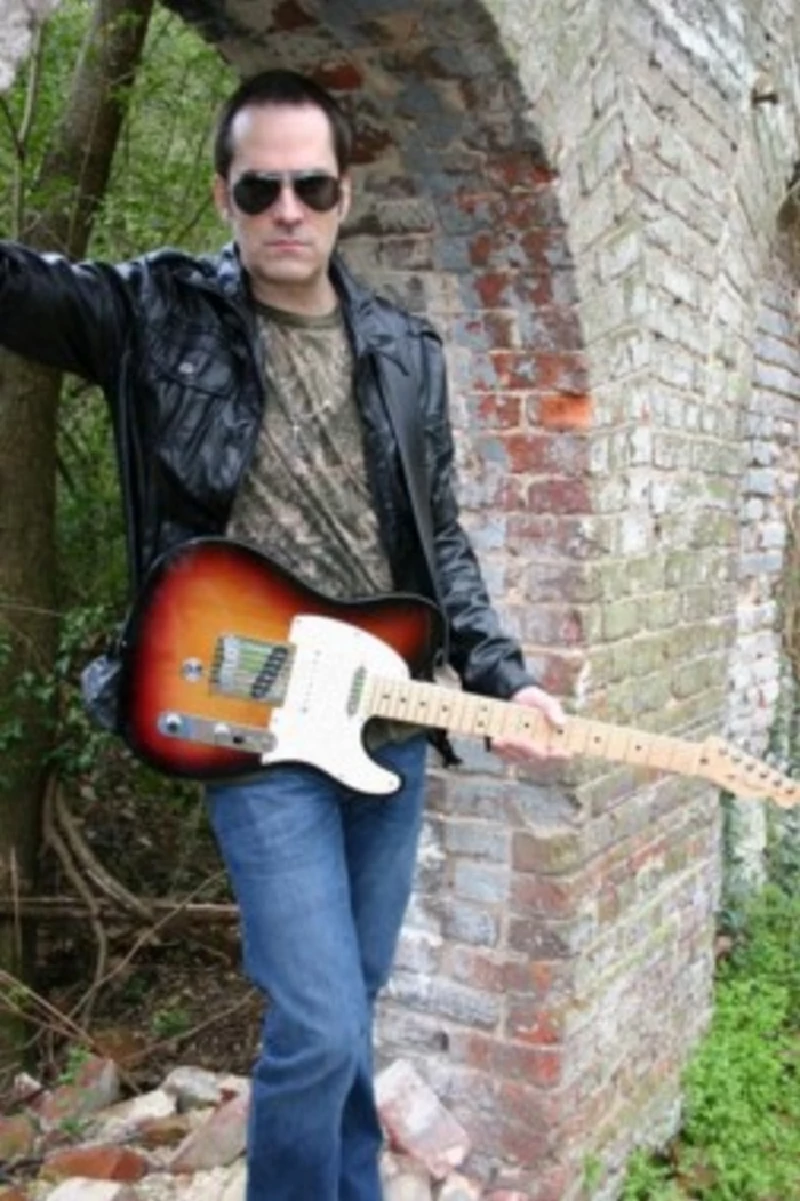
Visitor Comments:- |
| 379 Posted By: Lisa , Chicago, Illinois on 28 Nov 2010 |
|
Hi John,
I'm glad you enjoyed it. Thanks for the feedback.
Lisa Torem
|
| 378 Posted By: John, Morris, IL on 27 Nov 2010 |
|
very cool article/interview Bill, adds depth! thanks!!
|
interviews |
|
Interview (2011) |
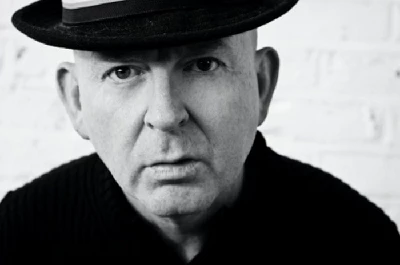
|
| In his third interview with Pennyblackmusic, former Creation Records' boss Alan McGee speaks to Anthony Strutt about his label's legacy and having finished with the music business |
| Interview (2010) |
| Interview (2009) |
profiles |
|
Interview (2013) |
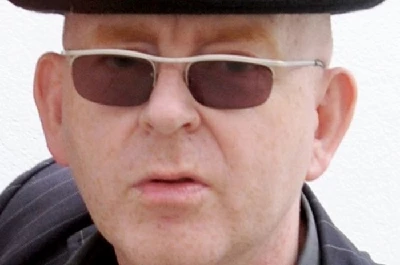
|
| Former Creation Records boss Alan McGee talks to Anthony Strutt about his new record company 359 Music, and why he has decided to start another label |
most viewed articles
current edition
Tossing Seed - InterviewMotorcycle Boy - Interview
Last of the Lovely Days - Interview
Lemonheads - O2 Ritz, Manchester, 16/8/2025
Waterboys - Roundhouse, London, 1/6/2025
Cary Baker - Down on the Corner: Adventures in Busking and Street Music
Robert Forster - Interview
Belouis Some - Video Vault
Brian Wilson - 1942-2025
Morrissey - Photoscapes
previous editions
Flip Side - Raging PagesBob Mould - Brooklyn Bowl, O2 Academy, London, 11/2/2016
Bill Hicks - Profile
Stereogram Revue - Voodoo Rooms, Edinburgh, 2/12.2015
Dave Greenfield - 1949-2020
That Petrol Emotion - That Petrol Emotion, Town and Country Club, London, 1988
Miscellaneous - Minehead, Somerset, 8/5/2009...10/5/2009
John Clarkson - A Life in Music
School - Interview
Ain't That Always The Way - Alan Horne After The Sound of Young Scotland 2
most viewed reviews
current edition
Liarbilitys - VandalheartKirk Adams and Ed Woltil - Eat The Sunshine, Drink The Starshine
Silver Biplanes - Coming Up For Air
Big Flame - Peel Sessions 84-86
Suzie Ungerleider - Among The Evergreens
Bruce Dickinson - More Balls to Picasso
Wolf Alice - The Clearing
Good Charlotte - Motel du Cap
Rupert Wates - Father to the Man
Phew, Erika Kobayashi,, Dieter Moebius - Radium Girls
Pennyblackmusic Regular Contributors
Adrian Janes
Amanda J. Window
Andrew Twambley
Anthony Dhanendran
Benjamin Howarth
Cila Warncke
Daniel Cressey
Darren Aston
Dastardly
Dave Goodwin
Denzil Watson
Dominic B. Simpson
Eoghan Lyng
Fiona Hutchings
Harry Sherriff
Helen Tipping
Jamie Rowland
John Clarkson
Julie Cruickshank
Kimberly Bright
Lisa Torem
Maarten Schiethart